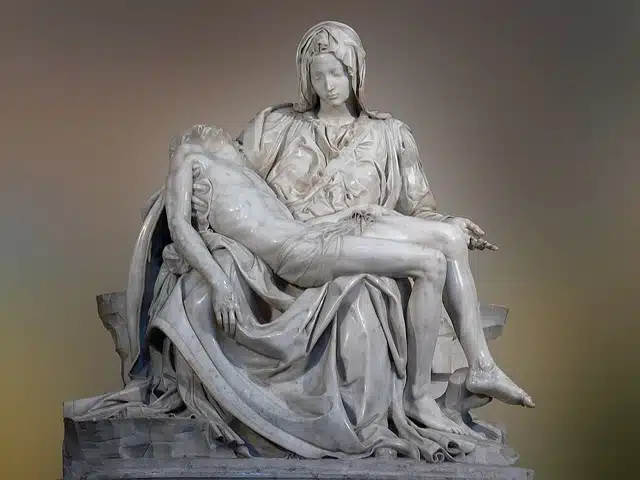
Someone who is pious acts with compassion.
In order to find the etymological origin of the term pious we have to turn to Latin. And it derives from the Latin word pietas , which means “piety,” and which, in turn, emanates from pius , which can be translated as “devotee.”
Pious is an adjective that is linked to piety (the virtue that implies devotion to God and religion, and is reflected in actions driven by compassion and love).
In the same way, it must be said that the adjective pious is attributed to certain liturgical acts. Thus, for example, we talk about the pious exercise of the Via Crucis . We can say that this is one of the most important devotions that Christians have and its objective is to remember what the mysteries of the Passion of Christ are.
pious individual
Someone pious, therefore, feels mercy or clemency for his neighbor. This person takes pity on the other and tries to offer their collaboration, acting with kindness. For example: “The old man remained lying on the side of the road for hours until a pious man approached and helped him,” “I have never met anyone as pious as Father Roberto,” “She is not a pious woman, but everything.” On the contrary: he is not moved by the suffering of others .
Suppose a man earns 5,000 pesos per month . Since he considers that 3,000 pesos are enough to satisfy his needs, he donates the remaining 2,000 to charity. That is why he is described by those who know him as pious . In addition, he usually dedicates several hours a month to community work, which reflects the compassion he feels for those who need help.
Just as piety is a virtue , if a subject is not pious, he or she may receive social condemnation. That would be the case of someone who observes from their vehicle that a person was hit and, however, does not stop to assist them since they are in a hurry.

The concept of pious is important in religion.
The term as a denomination
The term has also been used by numerous authors to title their works. This would be the case, for example, of "The Pious Venetian" . It is a famous comedy by Lope de Vega , which he published in 1638 .
Likewise, we must not overlook the fact that this adjective has also been used to define or recognize certain historical figures. This would be the case, for example, of Philip III of Spain (1578 – 1621), who was called “the Pious” . Why this nickname? Because, it seems, he prayed nine rosaries every day. Each one was in honor of each of the months that Jesus Christ spent in his mother's womb.
However, we must not forget Ludovico Pio (778 – 840), better known as Louis I , called “the Pious” , who was king of Aquitaine , as well as son of Charlemagne .
pious elements
Certain things also qualify as pious, either because they provoke mercy or because they offer mercy in a symbolic sense.
If a city suffers a heat wave, with temperatures exceeding 40º C , someone may describe the sun as merciful when the star hides behind the clouds for a few hours, providing relief to the population.
